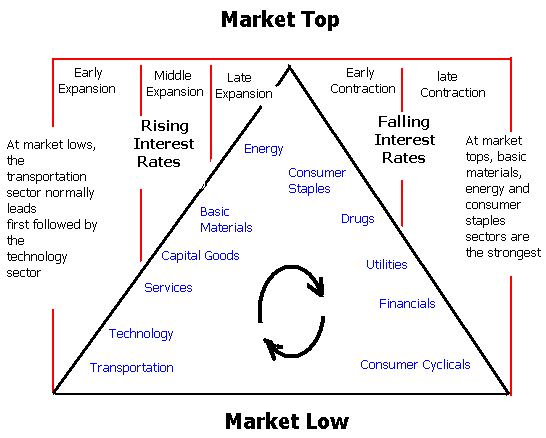Recession ahead? Here’s how to worry less about your portfolio.
As we face an impending market downtrend and economic recession, there are a few things you can do to prepare for what seems like the inevitable. If you’re already a cautious investor to start with, there may not be too much to worry about, especially if you’ve done what you can to minimize and control your investment risks.
If you’re sleeping well through the night despite the market’s reverberations, then your portfolio is probably well-balanced or diversified enough to allow you some measure of comfort.
Tips For Investing Defensively
But if you’re not quite sure about the investments you currently hold and are interested in dialing down the risk, here are a few suggestions on taking a defensive position with your holdings:
#1 Build up the cash part of your portfolio.
By increasing your cash allocation, you will dampen the overall risk of your portfolio. Look into money market funds and money market accounts for the most flexibility. You may also want to purchase certificates of deposit and think of laddering them as a way of optimizing your interest returns in a cash based asset class. Note though, that while CDs are FDIC insured, other forms of cash investments are not. For instance, with money market funds, you’ll get somewhat higher returns plus liquidity. However, with such accounts you’re giving up a little security: money market fund returns are not guaranteed by the government. CDs, however, are redeemable according to a schedule and are therefore less liquid: you can take your money out only upon maturity unless you’re willing to risk a penalty.

#2 Look into short and ultrashort term bond funds.
Short term bond funds are a step higher than cash, when considering yields. They offer higher yields than interest bearing cash accounts while still offering some safety, since they mature within shorter time periods relative to other bond variants, and have prices that are less affected by interest rate fluctuations.
Check out the bond risk explanation at the Investopedia:
Long-term bonds have greater duration than short-term bonds. Because of this, a given interest rate change will have greater effect on long-term bonds than on short-term bonds. This concept of duration can be difficult to conceptualize, but just think of it as the length of time that your bond will be affected by an interest rate change. For example, suppose interest rates rise today by 0.25%. A bond with only one coupon payment left until maturity will be underpaying the investor by 0.25% for only one coupon payment. On the other hand, a bond with 20 coupon payments left will be underpaying the investor for a much longer period. This difference in remaining payments will cause a greater drop in a long-term bond’s price than it will in a short-term bond’s price when interest rates rise.
#3 How about US Treasuries?
Securities backed by the US government offer less risk (though they have varying degrees of maturity ranging from one year or less for Treasury Bills to ten to thirty years for Treasury bonds) and a possible way to hedge against inflation with TIPs. If you want safety, these would be great places to put your money.
#4 Take shelter in traditional, large cap and high dividend equities.
If you invest in higher quality stocks of larger companies, you are clearly much more protected than if you own aggressive, smaller stocks. Large cap stocks are less volatile than their small cap counterparts and are therefore less risky. Investors take this fact at face value, but if you’d like to know what causes smaller cap stocks to be inherently riskier, About.com can give you some answers:
- Big fish eat small fish in a competitive market. You can have a great idea and a great company, but a larger competitor can kill you.
- Market and/or economic reversals can be devastating to smaller companies that often lack the financial resources to hold on through tough times.
- Many small companies are started by people with a great idea, but no business experience. If they fail to learn how to run the business or refuse to turn the business over to professional managers, the company is at risk of failing due to poor management.
- Evaluating small cap companies is sometimes difficult due to the lack of information or historical data. Short operating histories make analysis seem more like guesswork.
Equities with high dividends also help cushion the variations in share prices you may get during periods of market turmoil.
#5 Be well-diversified.
This can never be emphasized enough. I sound like a broken record about diversification, but really, the less concentrated your investments are and the more your money is spread across various investments, the less overall risk your portfolio carries. I consider this one of those immutable laws of finance.
#6 Make a bet and invest in defensive sectors.
Certain stock sectors hold up pretty well during rocky economic periods. Moving some of your funds towards equities that will resist decline during more bearish periods may provide some stability to your portfolio. Some examples of defensive sectors include utility, pipeline, pharmaceutical stocks as well as stocks with high dividend payouts. This is because consumers’ spending behavior for certain products don’t change even during a tough economic environment while their appetite for other goods can evaporate; thus, a defensive strategy would be to invest in companies that are behind such products. For instance, people will usually shift from tech stocks to consumer staples later in a market cycle because we don’t stop buying groceries during a downtrend.
For an excellent illustration and explanation of sector rotation investing, check out The Market Oracle:

Portfolios should be weighted toward sectors that have proven strength in economic contraction periods. This includes defensive groups, utilities and pharmaceuticals. Investors should also consider under weighting transportation, technology, basic industry and capital goods. These last groups usually perform poorly during economic slowdowns.
#7 Think before getting into more aggressive hedging strategies.
Though I wouldn’t do this myself because I stay away from more complicated financial positions, others may be interested in taking matters into their own hands and sniffing out opportunities in the down market. For those of you in this camp, you can take advantage of the slower market conditions to make money or to hedge your core portfolio. Some suggestions include purchasing put options and buying protective puts, although I can see how this can actually add to your investment risk, if you’re not quite sure what you’re doing. So if you’re considering going this route at all, a good amount of education and research will go a long way. Please tread carefully! Going on the offensive can actually be a defensive play, but only if it works!
The Consequences Of Playing Defensively
Whenever there’s a gut-wrenching slide in the markets, it’s always tempting to want to do something about it. It’s human nature and it’s easy to let our emotions get in the way when we’re seeing profits vaporize. But before you think of making any changes to your portfolio, think hard and carefully about your potential consequences — since the actions you take may trigger results that you don’t expect or desire. Such is the nature of the markets.
But if you insist on making a defensive play, then some other things to keep in mind: instead of selling non-retirement funds from one asset class and putting them into another, you can just funnel additional income and new money into the asset classes you’d like most representation in. By doing so, you’ll build up your investments in specific parts of your portfolio without redeeming from other areas, thus skirting any tax consequences. Or you can limit any investment “repositioning” or rebalancing to what’s in your tax sheltered accounts. Take note, however, that if you are weighted more heavily towards the more defensive asset classes, you may instead be taking the risk of being left behind once the economic and market recoveries begin. In a way, playing defensively involves a bit of market timing, so you’ll need to be keenly aware of market indicators and sentiment if you’d like to participate in the next upward cycle.
Playing conservatively means that some of your money may be sitting in the sidelines for a period of time, so make sure you have a plan in place for what to do when financial winds shift once again.
Image Credit: dailygalaxy.com
Copyright © 2008 The Digerati Life. All Rights Reserved.

{ 6 comments… read them below or add one }
My goal is to have a portfolio that’s balanced so that it can handle recession and soaring markets with only a little adjustment. It’d probably be fairly conservative, but not overly-so.
Several ultra-short bond funds have been caught with their shorts down. They’re even doing worse than stocks. (There’s another article I’m not able to google but that had another ultra-short bond at -48% YTD.)
http://www.sfgate.com/cgi-bin/article.cgi?f=/c/a/2008/03/25/BUNPVPMK8.DTL&tsp=1
Moral of the story — reaching for yields is dangerous.
I am surprised pharmaceuticals are considered defensive stocks. Seems a bit risky to me – studies for new drugs are expensive; often promising ideas fail to turn into drugs, often after a lot of money are apent; there is a danger that some drug will have a late side effect, that may cause a cascade of lawsuits. Even large companies like Merck and Pfeiser had some serious problems recently.
@MossySF – there is a difference between bonds and bond funds. Bonds have a maturity date, and if you stay with AAA bonds, you have an excellent chance of getting all your money back+interest on that date, regardless of what bonds do in the meantime; if you only get government bonds, you are guaranteed to get your money back by full tax power of government – more secure than a CD. Bond funds don’t have a fixed maturity date, so they can loose value.
Thanks for really good article. I have a bunch of CDs for pretty large amounts of money mature within next month. With the interest rate so low, I really need to find best places for this money; since I’d like to keep the same balance of stocks vs secure investments, I really need to find some stable investments… This may give me some ideas.
The diversification point is always valid, even for bull markets. Great post.
Great post, yeah the key to success and defense is diversification. My portfolio runs through multiple sectors and depending on the markets, some are dropped and some are gained.
I wonder about your opinion investing in precious metals, like gold or silver?